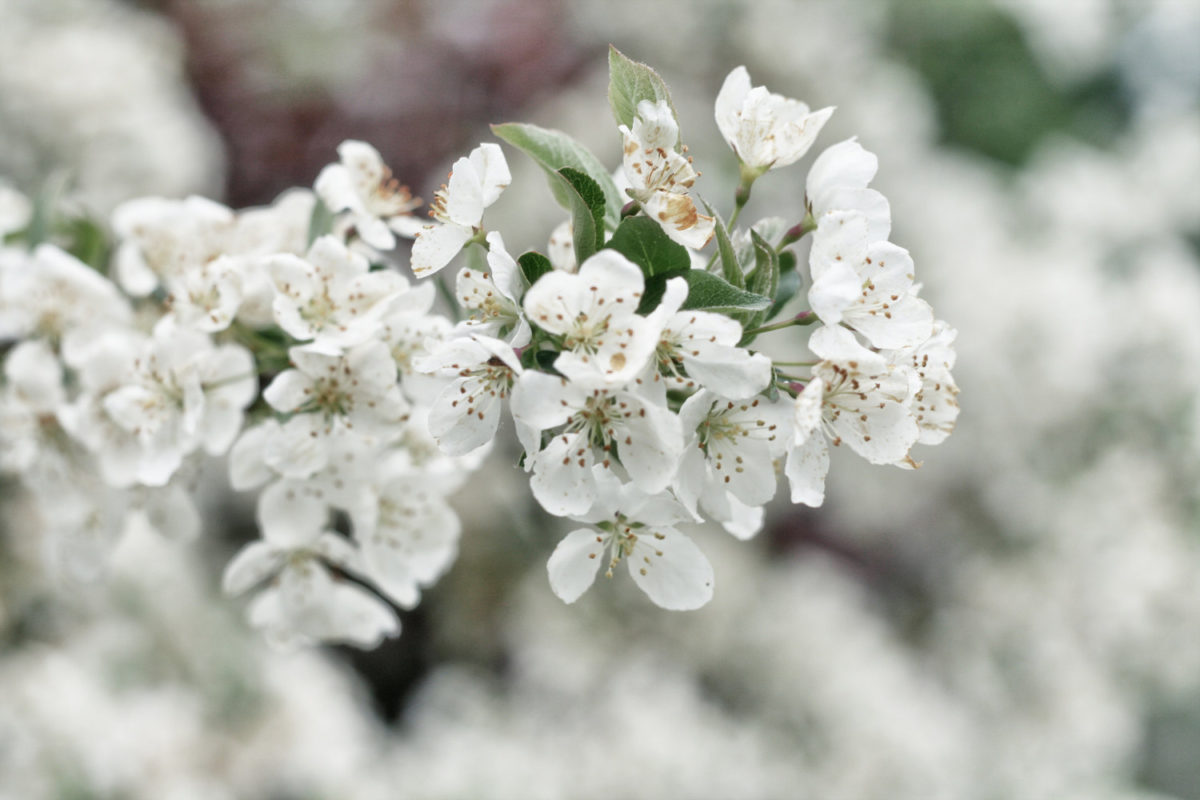Her eyes were the warmest tone of hazelnut—the most beautiful sight my own eyes had ever seen. Time and again, I see them: I catch a glimpse of them on my morning commute, staring at me through the glass across the train car, between the shoulders and purses and suits that press into one another with only the desire to become undone from each other and go about their days.
I see them in the three-by-five-inch mirror I hold up to my face six days a week. The brush strokes the bottom of the eyelid first, then the center, then the edge. The tip of the eyeliner presses against skin that, with time, will begin to hold creases that resemble hers.
She died just days after my favorite season arrived. Flowers were blooming outside her hospital window.

But I did not feel immobilized the way books and television characterize grief. Strangely enough, I found myself practicing the same routine I had before she died. Wake up, go to class, sit in on meetings, go running, go to work. Sit in Firestone. Do the assigned readings. Go to the street (admittedly more frequently now than before. I found inexplicable comfort sitting by the pool table on Terrace’s crowded second floor at three in the morning, the pulsing beat of the live band below and the inebriated conversations around me flooding my ears).
I even accepted a full-time internship the day after her passing, knowing it would mean no downtime for months ahead—I would face a full routine even after classes ended. I was back on campus the day after that, headed to my weekly tutoring commitment that same evening.
The normalcy of my daily actions right after losing the most important person in my life terrified me. Am I this cold-hearted? Do I not know how to just stop and grieve? Why am I acting so normal? Like nothing happened. Am I going to hit a wall soon?
These questions permeated my thoughts through the end of the season and into the new one.
This summer, I’ve seen her gaze everywhere. On the glass of the Q line, in the makeup mirror. I even saw her gaze reflected in the eyes of the one I was with for some time. His soft smile hinted that maybe, just maybe, things would be okay. That the odd normalcy I had been practicing for months after such a traumatic experience would soon enough fade and I would begin to mourn as movies say I should. It was a strange, almost masochistic yearning: desperately wanting to grieve more aggressively and not practice so much normalcy. I could not bring myself to do it.
This is not to say that I do not think of her. She is on my mind all the time—I walked through the Macy’s in Herald Square a few weeks ago as a passerby tested Chanel No. 5. It was her favorite perfume, and as soon as its scent met my nostrils, warm memories filled my mind of times past when she would embrace me and the whole world suddenly smelled like a woman with purpose.

What I have learned amid the chaos of death is that clinging to normalcy in circumstances of deep trauma is my grief process. Perhaps the reason for this is that I constantly try to see glimpses of her in my own reflection. She was a strong, resilient woman, never afraid of the obstacles life threw her way, of which there were plenty: immigrant, single mother, working class, non-English speaker, cancer patient.
I strive to maintain normalcy because perseverance is what she practiced her entire life. Perseverance made her a woman with purpose. Perseverance was the only choice she had, and it was a value she emphasized to me from the moment I learned to speak. Tú tienes la marca de la excelencia en la frente—los débiles se apartan del camino, Soraya. Acuérdate que tú no eres débil.
I will never be half the woman she was, but to do anything less than fight to keep going even after life smashed its heaviest boulder into my heart—to do anything less than honor the words she raised me with—would be a disservice to her memory.
I persevere because I want to be a woman with purpose as well. I want to take the life she was able to give me with her endless sacrifices and push forward for myself and for my loved ones.
I want to be the woman she would be proud to call her daughter.

Leave a Reply